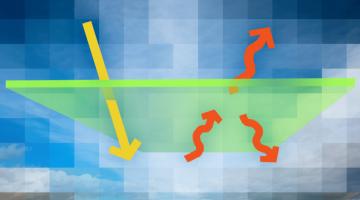- From www.coursera.org
Global Warming II: Create Your Own Models in Python
Course
en
English
This content is rated 0 out of 5

- Self-paced
- Free Access
- Fee-based Certificate
- 5 Sequences
- Introductive Level
Course details
Syllabus
- Week 1 - Time-Dependent Energy Balance Model
This class is intended to complement a Coursera class called Global Warming I: The Science and Modeling of Climate Change, which presents much of the background to the material here. In this class you'll be using spreadsheets (maybe) and Python (definitely) t... - Week 2 - Iterative Runaway Ice-Albedo Feedback Model
The ideas behind this model were explained in Unit 7, Feedbacks, in Part I of this class. First we get to generate simple linear "parameterization" functions of planetary albedo and the latitude to which ice forms (colder = lower latitude ice). Second, for an... - Week 3 - Ice Sheet Dynamics
Ice flows like extra-thick molasses, downhill. The shape of the ice sheet (altitude versus distance across) is determined by the relationship between ice surface slope and the flow rate of the ice. - Week 4 - Pressure, Rotation, and Fluid Flow
Planetary rotation and fluid flow were explained in Part I of this class, Unit 6, on Weather and Climate. - Week 5 - A Model of Climate Changes Today
Background for this model was presented in Part I of this class, Unit 9, The Perturbed Carbon Cycle.
Prerequisite
None.
Instructors
David Archer
Professor
Geophysical Sciences
Editor
One of the world's premier academic and research institutions, the University of Chicago has driven new ways of thinking since our 1890 founding. Today, UChicago is an intellectual destination that draws inspired scholars to our Hyde Park and international campuses, keeping UChicago at the nexus of ideas that challenge and change the world.

Platform
Coursera is a digital company offering massive open online course founded by computer teachers Andrew Ng and Daphne Koller Stanford University, located in Mountain View, California.
Coursera works with top universities and organizations to make some of their courses available online, and offers courses in many subjects, including: physics, engineering, humanities, medicine, biology, social sciences, mathematics, business, computer science, digital marketing, data science, and other subjects.

This content is rated 4.5 out of 5
(no review)This content is rated 4.5 out of 5
(no review)Complete this resource to write a review
